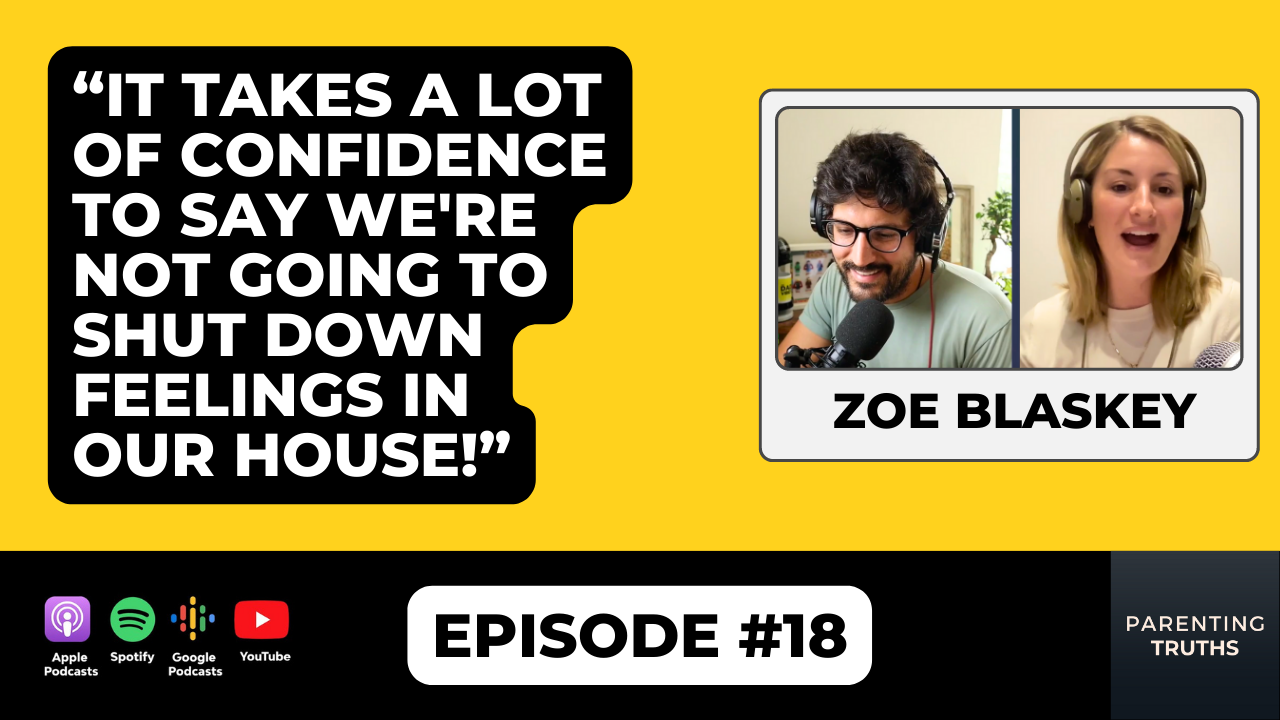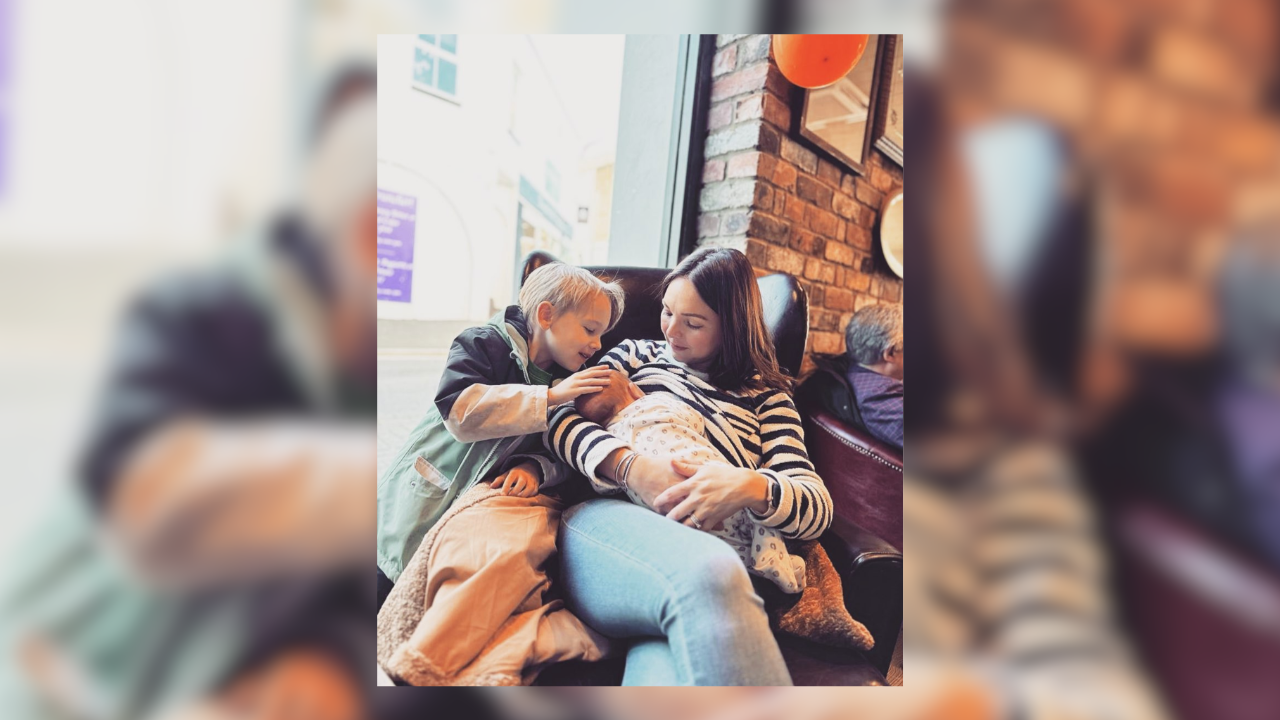When our child lashes out
Jan 04, 2022
It’s always difficult to deal with our little ones when they’re lashing out. Recently my son and I were playing, he was dancing around listening to the soundtrack for “The Greatest Showman” and I was kicking a sponge football around the house, great times!
He begins to chase me as he attempts to get the ball.
As he’s chasing I get a little lost in the game and start thinking I’m Lionel Messi *cringe*. After managing to keep the ball away from our son for a while I didn’t notice he was getting frustrated with me, I assumed the game was “chase daddy with the ball”, how wrong was I. To end the game I kicked the ball towards a make-shift goal, frustrated he couldn’t get the ball, this caused our little one to have an emotional outburst. I completely missed the mark here, I was far too busy trying to show off to our 3-year-old son!
I didn’t realise, but he was frustrated because he wanted the ball to show me a trick he’d been practising, even now I’m annoyed at myself for not picking up on it.
As the meltdown started he lashed out with a glitter wand he was holding and hit my knee.
“I wanted to show you my trick”
I reply with, “I understand you’re frustrated because you wanted to show me your trick, but it’s not ok to hit me”
He lashes out again hitting my knee, not hard, but he’s clearly struggling to express his emotions.
“Luca, it’s not ok to hit me with the wand. I understand you’re frustrated but the wand is for playing, not for hitting. If you hit me with the wand again, I’m going to have to put it safe because I don’t want to get hurt”
These are the challenging moments we all have to face as parents. On this occasion, we had been having a great day so I was in a good place to dig deep and do my best to respond calmly.
Nobody wants to be hit by their child, but at this moment I needed to appreciate that he was frustrated with me, he’s 3-years-old, so he’s still learning how to communicate these types of emotions.
As a parent, it’s these types of moments I see as “game time”, it’s when the hard work as a parent begins. They learn so much in these challenging moments. It’s time to dig deep and teach our children what appropriate behaviour looks like. It’s time to show them where the boundaries and limits are. It’s time to let them know that it’s ok to be frustrated and angry. It’s time to teach them that it’s not ok to express these emotions through destructive or aggressive behaviour. And it’s time to teach our little ones the alternatives to the way they’re behaving.
Ok so back to the story. Despite my clear limit, our little one lashes out for the third time so I follow through with the boundary I set and take the wand.
“Daddy is taking the wand because I don’t want to get hurt again. I’m going to keep this safe until you’re ready to play with it because the wand is for playing, not for hitting”
Of course, this escalated things, he wasn’t happy. I kept the wand and gave him a little space (we were both sitting on the floor). I backed away ever so slightly and said,
“When you’re ready to have the wand back just let me know. I can see daddy upset you but my knee is sore and I don’t want to be hit again, so I’m keeping the wand safe”
After about a minute he reached a level of calm, I was sat opposite him, and he asked for the wand back.
“Ok, now please remember the wand is for playing with, we don’t use it to hit people”
We both got up, as he was back to a level of calm, now felt like a good time to have a quick chat about what had happened.
“Luca, daddy is sorry for not including you in the game, I should have seen you wanted to play with the ball, next time we can play the game together, I’m sorry. But we need to remember if we get frustrated, it’s not ok to hit”
“Ok ok. And I’m sorry for hitting your leg daddy”
“Thank you, I know you were frustrated. Next time you’re angry or frustrated, you can talk to me, but you can’t hit me. The wand is for playing with, if we use it to hit then we won’t be able to play with it”
Now, will something like this happen again? Absolutely. If we can appreciate these actions aren’t personal, then we are better placed to respond and teach in these moments. As challenging as these moments are, they’re perfect opportunities to teach our children.
They’re unavoidable, and often when we shun, shame or scold, we’re actually punishing our child for something they aren’t developmentally capable of doing, regulating their emotions and communicating them effectively. So by responding calmly, we are providing them with the skills for next time. But these skills take time to learn, but our little ones will get there.
Although our little one lashed out, the situation didn’t escalate out of control, and we got through it within 5-10 minutes. The consequence was taking the wand, and explaining I was keeping it safe because we don’t use it to hit. I didn’t dive into a huge discussion during the meltdown because, at the height of an emotional outburst, we can’t reason with our little ones, they aren’t able to access the part of their brain that helps them with logical thinking.
Another benefit of dealing with a situation like this is that it doesn’t turn the situation into a full-blown episode.
We rode the wave out together, I allowed all the feelings but set some clear and on this occasion, firm boundaries, then once calm was restored, a discussion was had about what appropriate behaviour looks like in these moments. Once all was said and done, we were both ready to rock and roll with playtime again.
It’s important to remember we aren’t talking about a 23-year-old adult here, we’re talking about a 3-year-old (and of course, this is relevant for older children too), who’s still learning how to navigate and express these difficult emotions.
Let me finish by saying I don’t respond this way every time, and that’s ok too. On this occasion, I was in a great place, and I was ready to work with my child through this challenging situation. But it might have looked different had I been tried and exhausted. On the whole, I do my best to respond this way as consistently as possible, but it’s so important parents know that it’s ok to sometimes snap or lose their cool. We are only human.
And the fact is, when we lose our cool, we can flip these situations on their head, and use them as opportunities to teach our children, we can be the ones to apologise for our actions, we can say sorry and teach our children we make mistakes too, and not only do we make mistakes, we are capable of acknowledging them and saying sorry. Because it’s ok to make mistakes and be accountable for them.
Cheers all, hopefully, this one has been able to help you in some way.
If you struggle with these moments or with your own emotions, why not check out my course, The Calm Parent? The Calm Parent is a video series for parents of toddlers aged 1-4, helping tired parents rationalise their child's behaviour, reduce those power struggles and move from compliance to cooperation. Here's what one of my members Becky had to say about the course:
"We are finding lots of useful tips, in particular, the tantrums and meltdowns module as we're going through this with my 4 year old right now. I loved the 'freeze' example you used to help try and redirect before a full-blown meltdown ensues and have used it already! Thanks for sharing brilliant content!"
I hope to see you there, cheers all.



